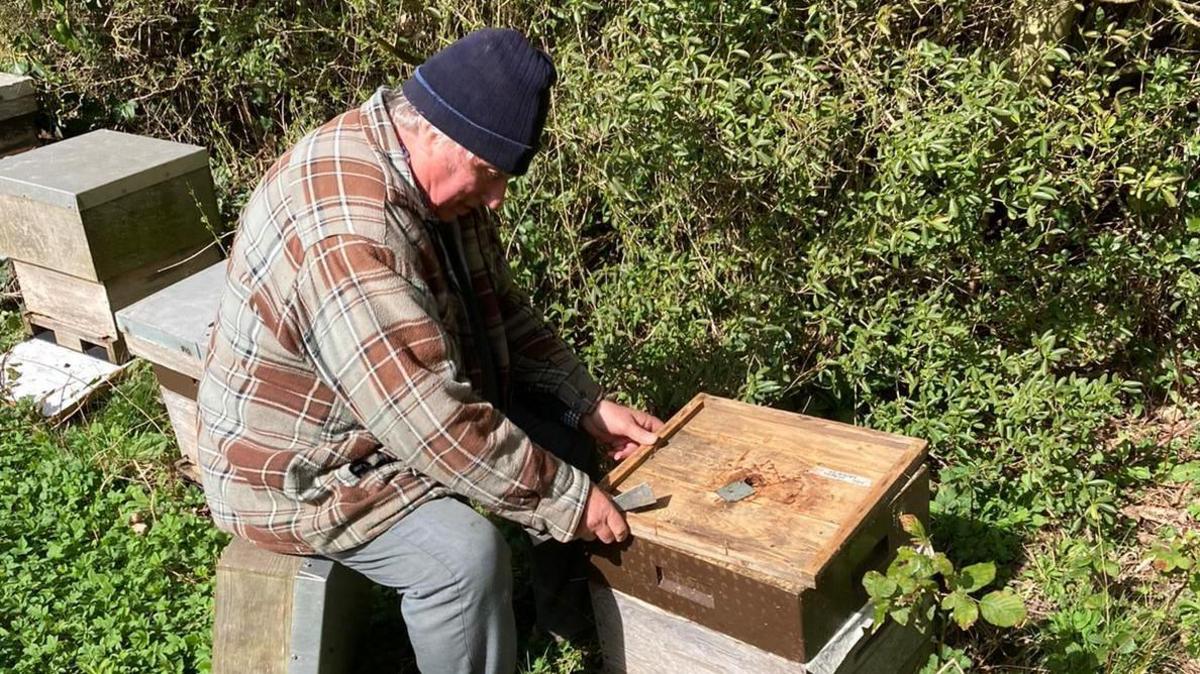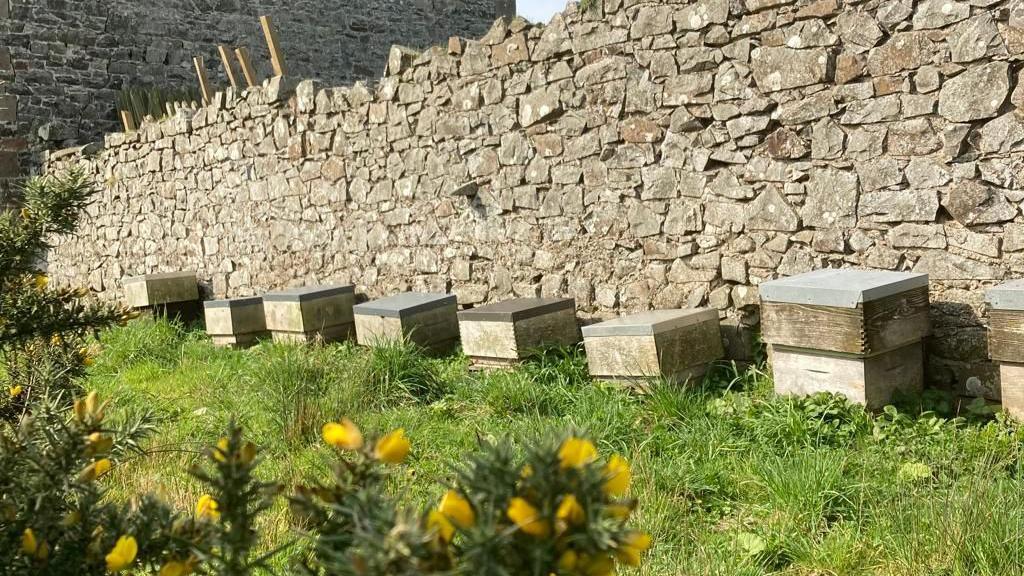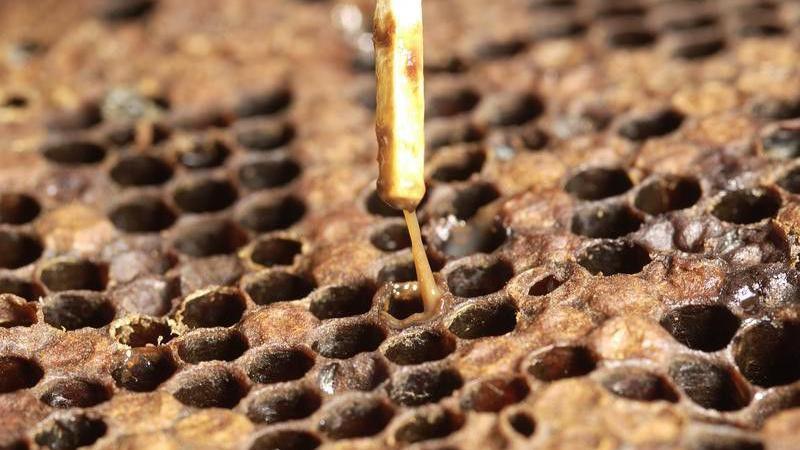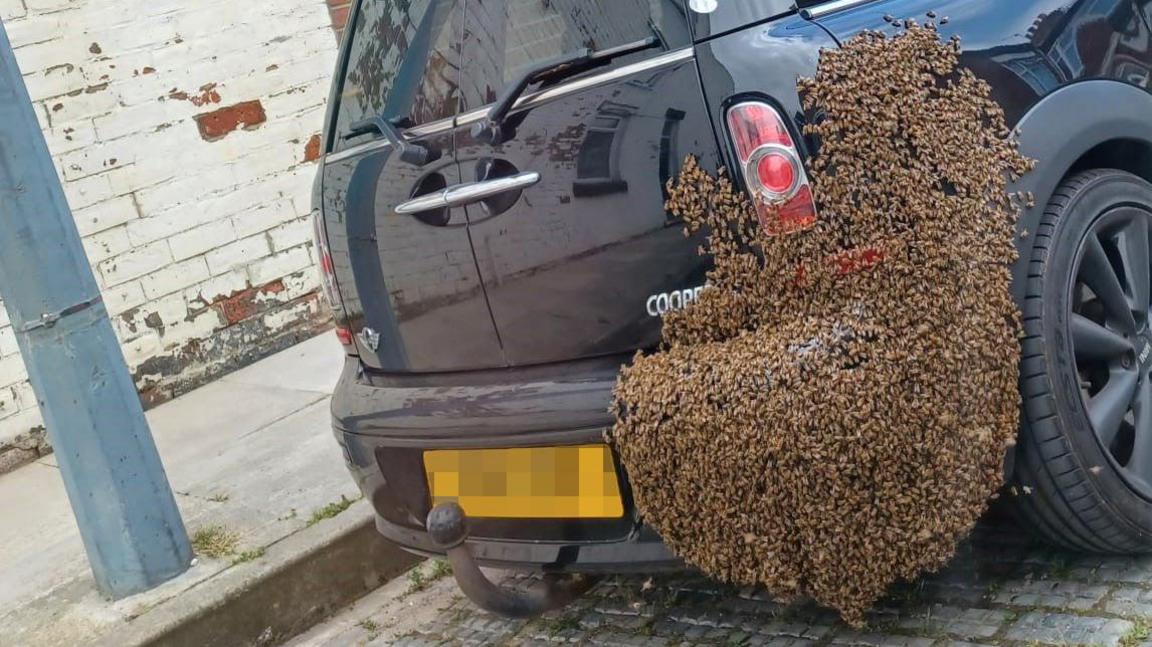Honey bee hives at threat from deadly parasites

William Robson said varroa mites can shorten the lives of queen bees to just 18 months
- Published
A beekeeper has said it is more difficult to keep his hives alive because of the growing threat of deadly parasites.
William Robson, who runs Chain Bridge Honey Farm in Berwick, Northumberland, said he had lost more colonies than ever before, with one of the causes being varroa mites.
The mites are tiny parasites which attack bees, spread viruses and can destroy a colony within two to three years.
Mr Robson said he and other commercial beekeepers regularly treated their hives for varroa but the pests keep "coming back with a vengeance".
"Growing up, if you had 30 hives of bees, in two years time you'd have 50 hives because they were going that well," he told BBC Radio Newcastle.
"Now, if you had 30 hives of bees, if you weren't very careful, you'd be down to 20."
He said the infestation could mean queen honey bees, which usually lived between four and five years, often did not last 18 months.

Mr Robson said it is much harder to keep his hives alive due to the tough conditions bees face
Weather can also play a deciding factor in the health of a colony and heavy rain, such as was experienced last year, can make it more difficult for struggling hives.
The increased use of pesticides is also another factor which can kill bees.
But Mr Robson said there could still be a future for beekeepers if people continued to support small businesses.
"There's demand," he said.
"We've got a lot of loyalty from the public and a lot of loyalty from the shopkeepers."
Follow BBC North East on X, external, Facebook, external, Nextdoor and Instagram, external.
Get in touch
Do you have a story suggestion for BBC Tyne?
Related topics
More stories
- Published6 July 2024

- Published26 June 2024
